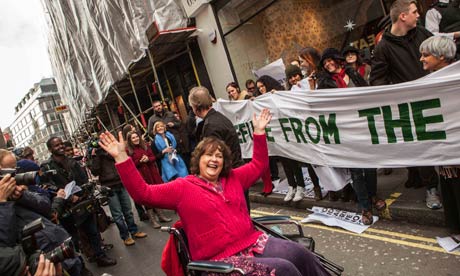Prem Sikka in The Guardian
The parliamentary hearing on HSBC, chaired by Margaret Hodge this week has further exposed the cosy arrangements between big business and those who are supposed to be collecting its taxes. Revelations of organised tax avoidance and even evasion don’t lead to any investigations, prosecutions and fines, it appears. And Lin Homer, the chief executive of HMRC, faced angry questioning from MPs who accused her department of failing to serve taxpayers’ interests.
While the UK dithers, other countries, notably the US, are taking meaningful action against the tax avoidance industry. In 2013 Ernst & Young was fined $123m for its past misdemeanours after admitting “wrongful conduct” over the sale of tax avoidance schemes. Some staff also received prison sentences. In 2005 KPMG was fined $456m after it admitted to a fraud that generated at least $11bn in phoney tax losses for clients. A number of the firm’s former senior personnel were jailed.
And US regulators have targeted lawyers: a former Jenkens & Gilchrist employee received an eight-year sentence and a $190m fine for promoting fraudulent tax avoidance schemes. Another was jailed for 15 years.
There have been other massive fines for tax-dodging schemes: Credit Suisse was made to pay $2.6bn; UBS $780m, and Deutsche Bank $554m. All these illustrate how the US, the supposed home of deregulation and light-touch regulation, deals with organised tax avoidance. Periodic hearings by its Senate committees have led to action by the tax authorities and the department of justice. One programme rewards individuals who expose tax problems at their workplace. Whistleblowers can receive up to 30% of the tax proceeds resulting from their information. In 2013 122 whistleblowers shared awards totalling $53m.
Britain’s efforts to recoup taxes are pathetic by comparison. As Hodge said to Homer yesterday: “One of my feelings of anger with you is that you sit there waiting for people to come. You don’t go out and police in the way other authorities are doing.”
No doubt all those addicted to tax avoidance, in whatever country, are able to game the rules and play cat-and-mouse with the tax authorities. These practices are deeply embedded in contemporary entrepreneurial culture. That’s why strong measures are needed to counter them.
But Britain lacks effective institutions and the political will to deal with the tax-avoidance industry. Hodge’s public accounts committee hearings have not been followed up with action by any government department.
The UK has a fragmented regulatory system. HMRC, the Serious Fraud Office, the Treasury, the Crown Prosecution Service, the Department of Justice, professional bodies and others are all keen to pass the buck. The overlapping structures result in duplication and waste. With an annual budget of about £35m, the SFO is incapable of fighting banks and giant law and accountancy firms.
Tax courts and tribunals have often declared avoidance schemes to be unlawful, but this has not been followed by investigations, fines or prosecutions. Despite winning some cases, HMRC has not even sought to recover legal costs from any of the parties.
One reason for HMRC’s timidity is the lack of personnel and resources. The economic case for investment to check tax avoidance is unanswerable: evidence suggests that for every £1 spent in 2013/14 by HMRC’s large business service – which deals with the UK’s largest and most complex businesses – an additional £97 was recovered. The local compliance unit, which handles smaller businesses and wealthy individuals, collected an additional £18 for every £1 spent the same year.
But it seems the government is not listening. It has cut HMRC funding, badly denting its efforts to expose wrongdoing. This leads to false economies, such as the HMRC relying on professional bodies to deal with the tax avoidance schemes promoted by big accountancy firms. This has to stop. No such firm has ever been disciplined or fined for peddling abusive tax avoidance schemes, even after the courts declared them unlawful.
We’ve heard ministers announce proposals, but these are rarely fully implemented. For example, in April 2013 the government introduced rules to ban companies and individuals who took part in failed tax avoidance schemes from being awarded government contracts. In practice, no such business has been barred.
This week’s revelations in the Guardian and the House of Commons show how flawed is our policing of tax dodgers. It’s clear these abuses will continue until, like others countries, we send out a tough signal that tax evaders will be caught – and punished severely.

